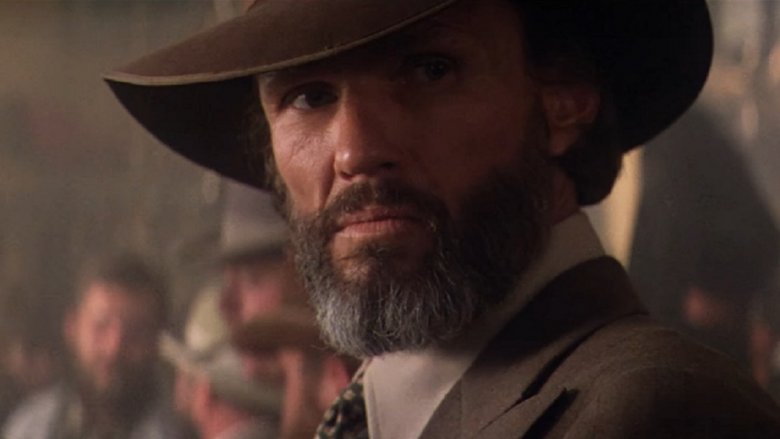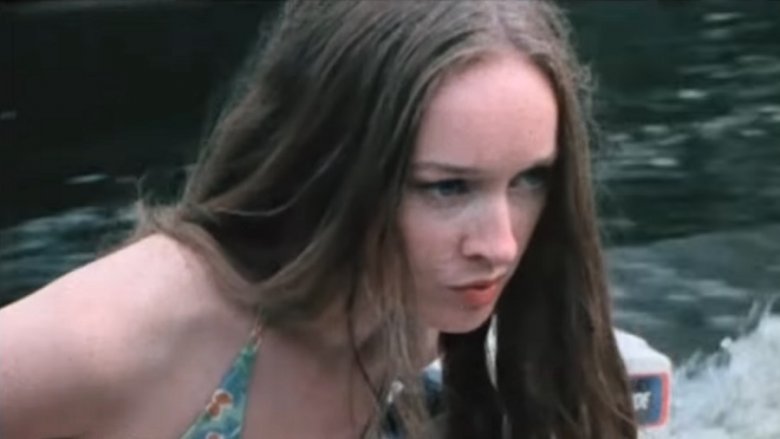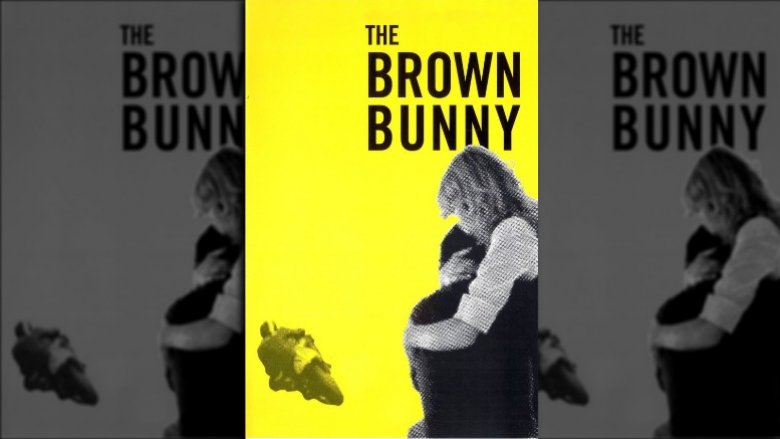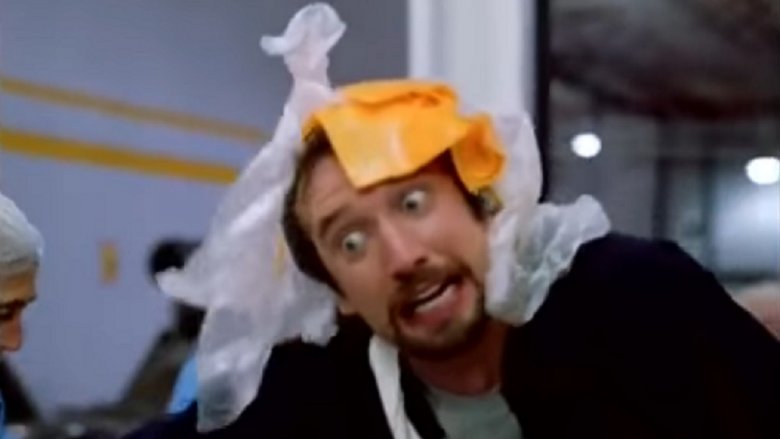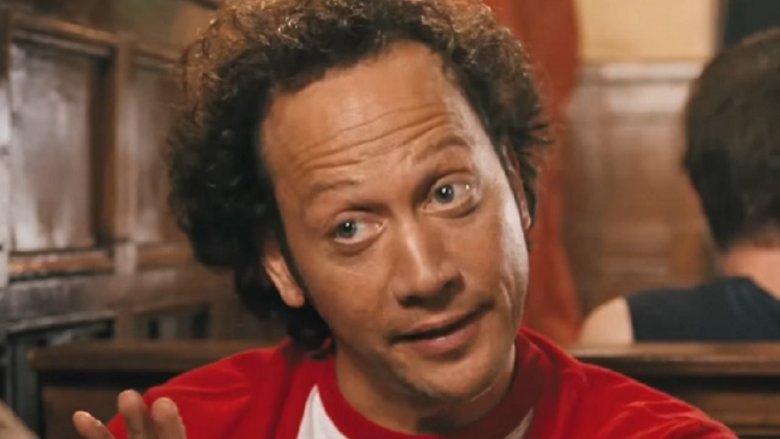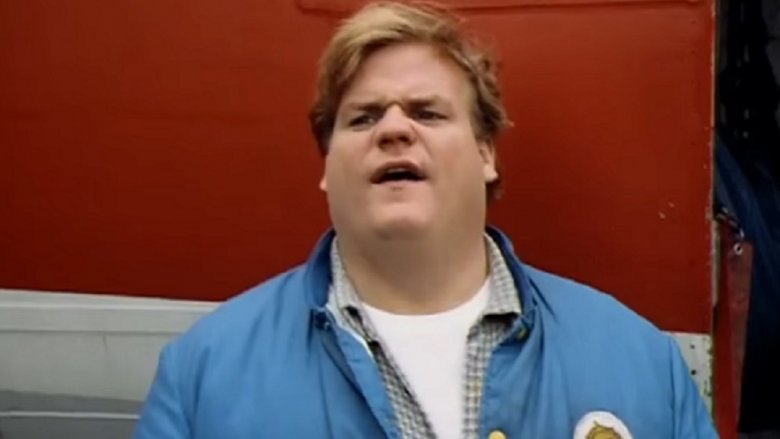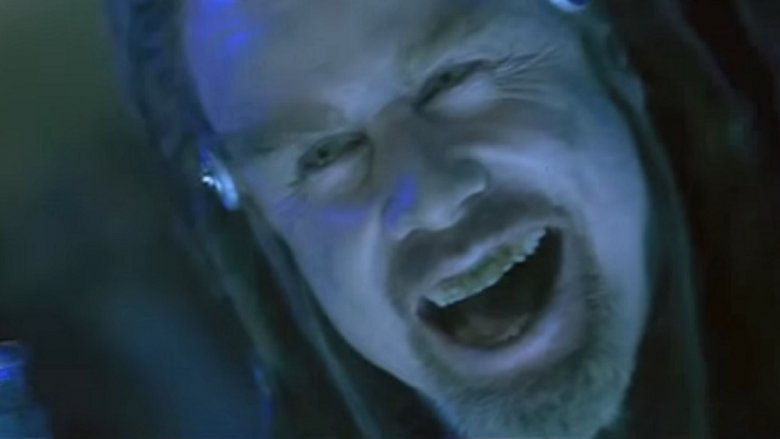Roger Ebert's Most Brutal Movie Takedowns Of All Time
Roger Ebert was a national treasure, and his death in 2013 after a long battle with cancer left not so much a gaping hole as a smoking crater in the world of film criticism. In more than four decades for the Chicago Sun-Times, several television series (with partners Gene Siskel and, later, Richard Roeper) and his own website, Ebert used his keen insight and acerbic wit to craft entertaining assessments of virtually every new release. His folksy and informal style stood out among his peers, and he was unafraid to go against popular consensus; as the 1979 classic Dawn of the Dead was being savaged by critics nationwide, Ebert took them to task with his own review (4 of 4 stars). "How can I defend this depraved trash?" he asked. "I do not defend it. I praise it. And it is not depraved, although some reviews have seen it that way. It is about depravity."
Ebert genuinely loved movies — so much so, in fact, that he seemed to take bad filmmaking as a personal affront. And such was his way with words that, if he felt that a disservice had been done to the form, he was likely to let the filmmakers and public know about it in the most scornful and hilarious manner possible. Here we present Roger Ebert's most hardcore disses — the most absolutely brutal missives ever issued by the greatest film critic of all time.
Paint Your Wagon, then light it on fire
An adaptation of a 1951 stage play, Paint Your Wagon belongs to perhaps the most underrepresented genre in all of film: the Western musical. The story isn't particularly important. What's important is that the film gave us Lee Marvin (The Dirty Dozen) and Clint Eastwood in all their grizzled frontier glory, crooning musical numbers about everything from lost loves to cans of beans. While it was among the highest grossing films of 1969, it was not a financial success for studio Paramount due to its insane budget, and critics responded mostly with barely stifled laughter.
Ebert's review managed to single out Marvin for praise while assessing the film as a whole in much the same way modern music critics treat Nickelback albums. "The fact is, Paint Your Wagon doesn't inspire a review," he wrote. "It doesn't even inspire a put-down. It just lies there in my mind — a big, heavy lump. But in the midst of it, like a visitor from another movie, Lee Marvin desperately labors to inject some flash and sparkle. And he succeeds in bringing whole scenes to life. A good actor can do this, but it's a waste when he must." He states point-blank that Eastwood and Marvin can't sing, but that Marvin can act almost well enough to convince us about the singing — "and for that ability," he wrote, "we are grateful, during our long ordeal." The review was such prototypical Ebert snark that he'd refer back to it 11 years later.
Heaven's Gate gets beat to hell
Roger Ebert's take on Michael Cimino's epic 1980 boondoggle Heaven's Gate is almost as legendarily awesome as the film itself is legendarily terrible. Given carte blanche to make literally any movie he wanted to after the success of The Deer Hunter, Cimino responded with one of the longest, most ridiculously unfocused, insanely incoherent films ever put together. The story of a bunch of American frontiersmen caught up in an evil Montana cattle rancher's plot should have been pretty straightforward. It should have been a lot of things, like "watchable." Instead, it became one of the most notorious flops of all time, barely grossing $3 million on a budget over ten times that.
Ebert's destruction of the film begins with the question of why Cimino chose to shoot the picture in ugly, washed out tones, pointing out that "a director is in deep trouble when we do not even enjoy the primary act of looking at his picture." But that's the least of the film's problems — he goes on to take apart the acting, the editing, the script, and the utter formlessness of the film's story, while reserving his biggest burn for the review's conclusion: "This movie is $36 million thrown to the winds. It is the most scandalous cinematic waste I have ever seen, and remember, I've seen Paint Your Wagon." Heaven's Gate has received some positive reappraisals from critics in the years since its release, but unsurprisingly, none from Ebert.
Ebert thinks I Spit On Your Grave should be put down
I Spit on Your Grave, also known as Day of the Woman, was a film steeped in the kind of controversy that only multiple 20-minute scenes depicting graphic sexual assault can ignite. Its story is simple: A young female writer on a getaway to the boonies is repeatedly violated by some backwoods thugs. She responds with a bloody, gory, at times genital-slicing revenge spree. While some contemporary critics have labeled it a misunderstood feminist screed, Ebert saw nothing in it other than what was on the surface. A surface that, in his estimation, was in dire need of a critical napalming.
"A vile bag of garbage ... a movie so sick, reprehensible and contemptible that I can hardly believe it's playing in respectable theaters," he gently opined. "But it is. Attending it was one of the most depressing experiences of my life." His contempt for the enthusiastic attendees at his screening was matched only by his contempt for the film's producers, distributors, and screeners, everyone they knew, and presumably their dogs and cats. If indeed director Meir Zarchi intended his piece as a celebration of kickass womanhood, this was lost on Ebert, who summed it up succinctly: "It is a geek show. I wonder if its exhibitors saw it before they decided to play it, and if they felt as unclean afterward as I did."
North leaves Ebert cold ... blooded
"North is one of the most unpleasant, contrived, artificial, cloying experiences I've had at the movies. To call it manipulative would be inaccurate; it has an ambition to manipulate, but fails." So begins one of the most blistering film reviews ever written, a takedown of Rob Reiner's 1994 comedy so complete that it's a wonder all existing prints didn't immediately burst into flames. The film stars a preteen Elijah Wood ("a wonderful young actor") who ditches his mean parents to search the world for nicer ones, a surrealist journey populated by weird caricatures in lieu of actual characters which takes constant, hard turns into the nonsensical.
North is famously terrible, with Ebert's future partner in crime Richard Roeper calling it "the most difficult to watch from start to finish" of all the many, many bad films he'd seen — but even that assessment is positively gentle compared to Ebert's. In the middle of penning his review, something apparently broke inside the storied critic, and this poured out: "I hated this movie. Hated hated hated hated hated this movie. Hated it. Hated every simpering stupid vacant audience-insulting moment of it. Hated the sensibility that thought anyone would like it. Hated the implied insult to the audience by its belief that anyone would be entertained by it."
Ebert wins Battle of The Brown Bunny
Vincent Gallo's The Brown Bunny is mostly remembered for suddenly taking a hardcore adult turn near the end, but what's not often remembered is what happens before this sexy detour. This is with good reason because nothing happens. Even the trailer is just a minute-long shot of Gallo driving; in his review, Roger Ebert claimed to have told a TV crew outside his Cannes screening that it was the worst film in the festival's history. "I have not seen every film in the history of the festival," he wrote, "yet I feel my judgment will stand. ... so unendurably boring that at one point, when [the main character] gets out of his van to change his shirt, there is applause."
Gallo immediately took offense, calling Ebert a "fat pig" with "the physique of a slave trader," whatever that means. In an op-ed piece, Ebert responded by announcing that Gallo "has put a curse on my colon and a hex on my prostate," although he wasn't too concerned: "I had a colonoscopy once, and they let me watch it on TV. It was more entertaining than The Brown Bunny." He wasn't done. Taking Gallo's lame barbs with customary grace, he wrote, "It is true that I am fat, but one day I will be thin, and he will still be the director of The Brown Bunny." A year later, Ebert would post a positive review of a heavily edited cut of the film, but nobody remembers that.
Freddy Got Fingered, then dissed super-hard
Tom Green doesn't exactly have the most subtle of comic sensibilities, and his 2001 starring vehicle Freddy Got Fingered is Exhibit A of Green's absolute commitment to lame, gross-out humor. It's been called the worst movie ever by more than one observer, but Ebert couldn't even be that kind. "The film," he wrote, "is a vomitorium consisting of 93 minutes of Tom Green doing things that a geek in a carnival sideshow would turn down."
Considering Green's propensity for jokes involving animal genitalia, child molestation, and dead babies, it's something of a minor miracle that Ebert was able to sit through the film at all. He pointed to it as the nadir of an unfortunate trend of comedies in the same vein, including Joe Dirt, Monkeybone and Tomcats — none of which provoked anywhere near the level of vitriol he reserved for Freddy Got Fingered. "This movie doesn't scrape the bottom of the barrel," he said. "This movie isn't the bottom of the barrel. This movie isn't below the bottom of the barrel. This movie doesn't deserve to be mentioned in the same sentence with barrels."
Deuce Bigalow: European Gigolo wins the prize
Deuce Bigalow: European Gigolo is the even-worse sequel to a terribly unfunny film, starring comedy vacuum Rob Schneider as a hapless would-be male escort. In his Hollywood Reporter review, critic Patrick Goldstein sarcastically suggested it be considered for an Oscar for the best running genitalia joke delivered by a third-rate comic, prompting Schneider to pen an open letter directing the lamest of burns at Goldstein: "Maybe you didn't win a Pulitzer Prize because they haven't invented a category for Best Third-Rate, Unfunny Pompous Reporter Who's Never Been Acknowledged by His Peers."
This perked up the ears of Roger Ebert. In his scathing review, he labeled European Gigolo "aggressively bad, as if it wants to cause suffering to the audience," before recounting the story of Schneider's beef with Goldstein, setting himself up for the slamdunk: "Schneider is correct, and Patrick Goldstein has not yet won a Pulitzer Prize. ... As chance would have it, I have won the Pulitzer Prize, and so I am qualified. Speaking in my official capacity as a Pulitzer Prize winner, Mr. Schneider, your movie sucks." The last three words would become the title of one of Ebert's best-selling books, but Schneider — a Zen Buddhist — took it in stride. Upon hearing of Ebert's illness, Schneider sent a huge floral arrangement to his hospital room with a note: "Roger, thank you for sharing your love of cinema with all of us. I hope you are back doing what you love most soon. ... Signed, Rob Schneider, your least favorite movie star."
Tommy Boy should have stayed home
The late Chris Farley was beloved by many, but nobody ever accused his movies of being high comedy. (Unless it's a very specific kind of "high" you're talking about.) His first collaboration with David Spade, Tommy Boy served up the kind of easy laughs and recycled gags sure to earn your film a critical drubbing while prying open the wallets of the undiscriminating, and Ebert was first in line to take shots, opening his review with an awesomely constructed joke far funnier than anything the film itself had to offer: "Tommy Boy is one of those movies that plays like an explosion down at the screenplay factory. You can almost picture a bewildered office boy, his face smudged with soot, wandering through the ruins and rescuing pages at random. Too bad they didn't mail them to the insurance company instead of filming them."
Almost as if he were attempting to demonstrate to the filmmakers how to be clever, Ebert peppered his review with sarcastic asides ("The plot thickens. Or does it congeal?") and references to much better films ("It was Forrest Gump, I believe, who said, 'Funny is as funny does.'"). The film may have won an enduring place in the hearts of fans, but even they seem to have a hard time talking about it without acknowledging the brilliance of that "explosion at the screenplay factory" line.
Ebert gets his guns out for Battlefield Earth
The novel Battlefield Earth was written by Scientology founder L. Ron Hubbard, and the film version plays largely like you would expect an adaptation of a voluminous work from the mind behind that famously weird belief system to play. That is to say, it's a muddled mess, featuring an ultra-hammy John Travolta (one of Scientology's more famous followers) as an evil alien warlord who ... you know what, nobody is really sure. Least of all Ebert, whose assessment focused on his visceral reaction to the film: "Battlefield Earth is like taking a bus trip with someone who has needed a bath for a long time. It's not merely bad; it's unpleasant in a hostile way. The visuals are grubby and drab ... the soundtrack sounds like the boom mike is being slammed against the inside of a 55-gallon drum. The plot ... but let me catch my breath."
Ebert slathered gooey viciousness on every aspect of the notorious flop's production, from the "cheesy" opening titles to the costumes, which "look like they were purchased from the Goodwill store on the planet Tatooine." He described how he knew he was watching history in the making, a film destined to become a punchline for decades to come — and he was totally right. But with characteristic cinema-informed brevity, he condensed every word that would ever be written about this stinker into two short sentences: "Some movies run off the rails. This one is like the train crash in The Fugitive."
The Village gets burned down
The Village marked the point where M. Night Shyamalan started to be seen less as The Next Hitchcock and more The Guy Who Can't Make a Movie Without a Stupid Twist Ending. In case you haven't seen it, spoilers! The old-timey village of the title isn't old-timey at all, but is actually isolated from the modern world by the village elders with tall tales of mysterious creatures in the woods surrounding it. The twist was divisive to say the least, with many critics finding it absurd — and although Roger Ebert acknowledged Shyamalan as a skilled filmmaker, he lamented in his review that "this time, alas, he took the day off."
He took the film to task for its overly somber tone, "flimsy excuse for a plot" and one-dimensional characters — but it was that twist that really angried up his blood. Concluding his review, he wrote that it was "so witless ... that when we do discover the secret, we want to rewind the film so we don't know the secret anymore. And then keep on rewinding, and rewinding, until we're back at the beginning, and can get up from our seats and walk backward out of the theater and go down the up escalator and watch the money spring from the cash register into our pockets." Now that is how you do a surprise twist ending.

